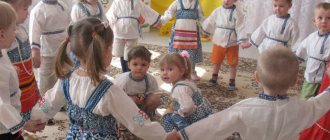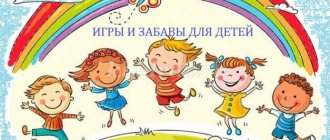Other games
The games we briefly mentioned are by no means the only ones of their kind, but they can safely be called worthy examples of some of the best psychological games. The direction and form of psychological games can be completely different. The main thing is to find the most interesting game for yourself and just start playing it. Better yet, try all the games. This, at the same time, will have a positive impact on many of your personal characteristics, and will help you decide which type of games is most suitable for you personally.
As an addition, there are a few more games that you can master. This is a wonderful game “Telepathy”, the main focus of which is self-knowledge, self-awareness and the development of one’s hidden abilities. There is a wonderful game for developing listening skills and attentiveness called “The Lost Storyteller.” By the way, it also affects interpersonal relationships. A good game for trust and mutual understanding is “Coin”. It also involves close interaction between the participants, which allows them to deeply explore each other’s psychological characteristics. The category of similar games can also include the games “Homeostat”, “Docking”, “Rank”, “Choice” and others. You can easily find information about these and many other interesting psychological games on the Internet. By the way, about the Internet: today a large number of very interesting computer and online games have been developed that have a pronounced psychological orientation. You can find such games in computer stores or download them from the Internet. Good games installed on your home computer will always contribute to a more relaxed and friendly atmosphere in your home. You can always take a break from your daily routine by playing, for example, online Monopoly. And your children will find it interesting and fun to watch you play and participate in the process themselves. Naturally, there are educational online games for children, which are a pleasure to play. Search the Internet for something suitable, and you will definitely find a worthwhile option for yourself and your loved ones.
Games as a way of effective psychological influence, as mentioned earlier, have found application in a variety of areas of human activity. A person begins to play from a very young age - at home with his parents, in kindergarten with other children. Then we encounter different games in junior and senior school, college, and university. In adult life, we are also surrounded by games, but these are already games for adults. With the help of such games, people striving for success and self-improvement develop their strong qualities and work on their weak ones. And this actually makes them stronger and more developed individuals, increases their efficiency and effectiveness, makes interaction with the outside world and themselves deeper and more harmonious.
You shouldn’t neglect this method of self-development either. Play games, change them, invent your own. Take games into your “arms” and make them a part of your life. This way you can always be in the process of development. And the process of personal growth itself will never bore you and will continue to remain interesting and exciting.
We wish you success on the path of self-improvement and studying human psychology!
The emergence of role-playing games.
2.1. From Toy Story.
Play precedes work in the life of every person. First, real war and the need for good wars it creates, and then the game of war to satisfy this need. . From these words we can conclude that play is an activity that responds to the needs of a society where there are children, of which they must become active members.
Toys such as rattles, buzzers, tops, bows, arrows, dolls, strings, E.A. Arcanine is classified as primordial. But they could not appear on their own - only after the emergence of tools, which required the same functions (rotation, buzzing, catching animals, etc.). All these toys are a product of historical development. Currently, they have lost their former role as tools for hunting, making fire, scaring away wild animals, etc., but they remain in the world of children's toys, changing their functions and remaining practically unchanged in external form. For example, tying knots and weaving rope could be an exercise for weaving nets, which in turn were necessary for hunting and labor. Now such exercises have degenerated into movements that develop fine motor skills of the hands, which remains very useful to this day.
2.2. The reason for the emergence of role-playing games.
Having learned to manipulate objects, children strive for independence, but at the same time, to imitate adults. Children, observing the world of adults, understand with interest that different people perform different roles in society. They get acquainted with a wide variety of various professions, each of which, one way or another, interests them. Consider a situation in a family where mom is a doctor and dad is a pilot. Listening to parents' stories about their work, a child may want to treat people like mom, or fly on an airplane like dad. He wants to be like an adult, wants to do what his parents do, but at this stage of his development he cannot perform certain functions appropriate for these professions. It is unlikely that a six-year-old child will be able to fly a real plane to help people fly to the right city, or cure a person from a real disease. But he will be able to put on a white coat, take a toy thermometer and build a toy hospital, where the patients will be a teddy bear, a doll or one of the adults. In this way, the child seems to be trying on the role of this profession; he is involved in play activities. This is a role-playing game.
Thus, by comparing his actions with the actions of adults, the child gets acquainted with the world of adults and prepares the ground for the emergence of a role-playing game, where he will learn to try on a role based on an imaginary situation, and follow the rules arising from the chosen role.
Parents play an important role in this process. They are among the first to start playing with children, involving them in this fascinating world where everything is possible. Adults encourage and stimulate children's playful imagination. They teach words to their imagination, inventing various situations in the game. Let's say a girl shows a pencil and says that it is a magic wand, and her mother immediately joins the game and exclaims that she turned her into a frog.
By the end of early childhood, children are able to call themselves differently (another name) and speak on behalf of this new character.
By the age of 4-5, children have already mastered the basic ways of playing and begin to independently use the acquired skills separately from adults.
Role-playing game prerequisites also include:
1. Social contacts of the child;
2. The quality and degree of emotional attachment to a significant adult (feeling the care, security and love coming from the mother, the child will be more interested in exploring the world around her in her presence and contacting other children)
Role-playing does not appear out of nowhere, but as a result of changes in the functions and place of the child in society during the historical development of mankind. By its nature and origin it is social, because arises against the background of certain social conditions in the lives of children.
What are the benefits of role-playing games?
What are the specific benefits of role-playing games? Let's start with the fact that any game for a child is a way of learning about the world, people and himself. Role-playing play allows you to develop communication skills, broaden your horizons, learn to defend your point of view and get out of conflict situations with dignity.
By trying on someone else's image and at the same time remaining himself, the child gains experience in social communication and forms his own character. Involving multiple children in role play promotes interaction, mutual understanding, and discipline.
What children play helps develop certain skills. Often, play becomes an indicator of a child’s condition or development. By repeating the behavior of adults or modeling a lived situation, a child builds his own model of behavior and character traits, displays temperament and develops social skills.
The one who gives unimaginable hairstyles to dolls and girlfriends is capable of becoming a talented hairdresser.
Boys who are interested in robots and construction kits often become engineers and IT specialists.
Therefore, role-playing is also a way for children to get to know themselves.
Why do children love games with transformations?
Why do children of different ages love games with transformations? Boys and girls get used to the chosen character, copy behavior and actions, in general, feel like a different person or a fairy-tale hero.
What attracts a child so much to reincarnation? Psychologists say that children like reincarnation because they get the opportunity to express themselves and display some personal qualities and feelings.
A child, becoming someone else, changes his voice and gait, performs actions unusual for him and tries himself in something new. Clothes and attributes help you get used to the character better. It is no coincidence that girls love to try on their mother’s outfits and shoes, and boys take their father’s tools and accessories.
For example, they did not think that the baby could take initiative, be neat, and caring. Many children show leadership qualities and organizational skills during play, but this does not happen in ordinary life.
Perhaps it is role-playing games that reveal the true essence and character of children. Therefore, adults should periodically observe boys and girls playing together.
What types of role-playing games are there?
What are the types of plots for children's role-playing games? The plot is the basis of the game, without it the action will not happen, since there will be no main characters, events, or outcome.
The plots of role-playing games change with the age of their participants. If kids play hospital, family, school, kingdom, then older children choose games like store, beauty salon, war, business.
Already during the development of the plot and preparation, a leader is identified, to whom they listen and consult.
But there are also those who argue and strive to take the place of leader. A clash of interests between two coordinators can have different outcomes:
- or both will learn to hear and understand each other, and therefore will begin to “work” in tandem,
- or the company of players will split into two parts - supporters of one and supporters of the other,
- or one of the leaders leaves the company alone, and everyone remains.
The game has not yet begun, but experience in cooperation and conflict resolution has already been gained. This experience will be comprehended by the child independently or with the help of parents (friends, people whom the child trusts).
Karpman triangle
It is also important to say a few words about the Karpman triangle, which was a continuator of the ideas of Eric Berne. He also talks about a game, only subconscious, which describes the connection between the three main problems in relationships between people
According to this point of view, all the roles that underlie human games can be reduced to three main ones - Rescuer, Victim of Persecution and Persecutor of the Guilty. These roles are combined into a triangle, which symbolizes their inextricable connection and replacement of each other.
“The three roles in this game - victim, pursuer and rescuer - are actually a simplification of real life. Each person sees himself as a generous rescuer of an ungrateful or grateful victim, a persecutor of infidels and a victim of evil persecutors. Immersion in any of these roles causes a person to begin to ignore reality, like an actor who knows that he is living a fictional life, but continues to “believe” in its authenticity in order to create a good performance.”
Main types of psychological games and their features
Games can be business, positional, innovative, organizational-training, training, organizational-thinking, organizational-activity and others. But still, there are several main types of psychological games.
Game shells. In this type of game, the game plot itself is the general background against which developmental, correctional and psychological problems are solved. Such activities contribute to the development of basic mental properties and personality processes, as well as the development of reflection and self-reflection.
Living games. In living games, there is an individual and joint exploration of the gaming space with a group of people, the building of interpersonal relationships within it and the comprehension of personal values. This type of games develops the motivational aspect of a person’s personality, his system of life values, and personal criticality; allows you to independently build your activities and relationships with others; expands ideas about human feelings and experiences.
Drama games. Drama games contribute to the self-determination of their participants in certain situations and the improvement of value and semantic choice. The motivational sphere, the system of life values, readiness to make choices, the ability to set goals, and planning skills develop. Features of reflection and self-reflection are formed.
Project games. Project games influence a person’s mastery and comprehension of instrumental tasks that are associated with the construction of activities, the achievement of specific results and the systematization of the system of business relationships with others. The skills of goal setting, planning and the ability to adapt actions to specific conditions are developed. Self-regulation skills are formed, personal criticism and the ability to relate one’s actions to the actions of other people develop.
The types of psychological games presented above can be used both independently and used in conjunction with others. The descriptions we give are the most general and give only a superficial idea of psychological games.
Now we move on to the most interesting block – the games themselves. Next, we will consider some of the most popular and effective games, and their benefits in human development and life.
Junior school age - the best psychological games and training features
The main goal of psychological training for preschool children is to work through mental problems and instill skills that allow them to independently overcome obstacles. Recommended elements of psychological games for children of primary school age:
- conducting exercises to stabilize the mental state and relaxation;
- role-playing games, which are carried out with special props (prepare equipment in advance according to the planned psychological training);
- acting techniques - the child must learn to take care of himself, show emotions, control behavior;
- For hyperactive children with depressive disorders, it is recommended to conduct art therapy to relieve the child of psychological discomfort.
The most important role in psychological games for younger schoolchildren is played by therapy, which is aimed at eliminating difficulties with self-expression. If a child is unable to express his thoughts, reflections, experiences, the problem can only be eliminated through regular training, which should be accompanied by musical melodies. Music therapy is one of the most effective techniques that has a positive effect on the child’s psyche, calming and helping to control emotions.
Princess Nesmeyana
An interesting psychological role-playing game that a child will certainly enjoy. A chair is placed in the center of the room, on which one of the participants sits (determined by lot or simply assigned by agreement of all participants). He is given the title of “Princess Nesmeyana”, the task is to hold it for a long time.
The task of the other participants in the psychological training is to make Nesmeyana laugh or at least make the princess smile. The one who succeeds takes a chair and, in turn, tries not to laugh. Victory is awarded to the player who managed to resist provocation for a longer period of time and maintain a serious appearance.
Your favorite activity
This psychological game is recommended to be carried out in the first stages of classes - the training allows you to establish contact between new participants and get to know each other better. The psychologist calls the children one by one to the middle of the room and asks a question about their hobbies and favorite activities. It is forbidden to answer out loud - it is recommended to show everything using gestures and supplement your answers with facial expressions.
The task of the other participants in the psychological training is to try to guess what hobby the narrator is describing. The one who was the first to give the correct answer takes a place in the center of the room and continues the game, talking about his hobby.
Races with balloons
The exercise is recommended for all types of children - hyperactive and calm. Be sure to form teams in advance (there should be the same number of participants, preferably in pairs). The task of each participant is to, in pairs, alternately run with the balloon to the finish line, return back and pass the baton to the next pair. The main condition is that it is strictly forbidden to touch the ball with your hands; it should be held with any part of the body.
Victory is awarded to the team that was the first to complete the task - all pairs reached the finish line and returned back. Psychological play helps children learn to act in a team and establish contact in pairs.






